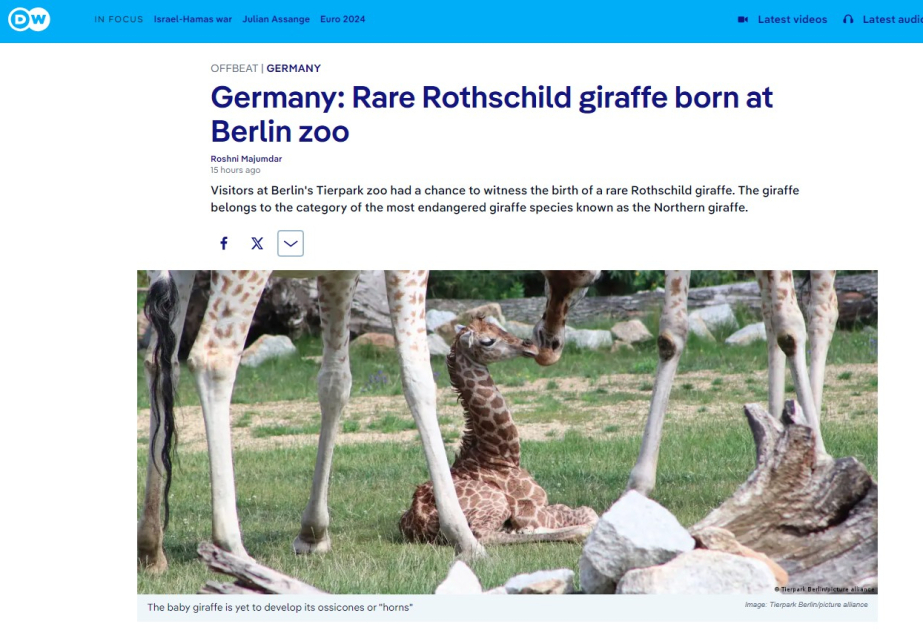Visitors at Berlin's Tierpark zoo had a chance to witness the birth of a rare Rothschild giraffe, according to DW.
The giraffe belongs to the category of the most endangered giraffe species known as the Northern giraffe.
A Rothschild's giraffe gave birth to a calf at the Tierpark Berlin zoo on Monday, with some visitors witnessing the rare event.
"Experiencing a giraffe birth live is something very special in every respect — especially as there are only 1,400 adult Rothschild giraffes in their natural habitat," said Dr. Andreas Knieriem, the director at the zoo.
"Today, Monday, numerous Tierpark zoo guests were able to witness this wonder of nature in our savannah landscape with their own eyes," he said.
The yet-unnamed calf was born a few days after World Giraffe Day — which is celebrated on June 21.
Baby giraffes weigh around 60 kilograms (132 pounds) and are approximately 1.80 meters (5 feet 11 inches) at birth.
The newcomer was still a little wobbly on arrival, but appeared very lively, according to the zoo. A giraffe is able to stand up after around an hour after birth and even run a little later on.
The baby giraffe was visibly without the ossicones, or the distinct horns of a giraffe. They do not form until about a week after birth.
Because a female giraffe gives birth while standing, her calf falls from a height of around two meters — a literal hard introduction to life for the calf.
Amalka, the mother, had three calves before she gave birth on Monday.
Scientists only recently discovered that there are four distinct types of giraffes, rather than one as they had previously believed.
Although giraffes as a whole are not endangered, some giraffe subspecies are, according to conservationists.
The Rothschild giraffe falls into the category of the Northern giraffe — the most endangered giraffe species. The International Fund for Animal Welfare reports that there are only 1,399 Rothschild's giraffes left in the wild.
"Rothschild's giraffes are threatened in their homeland in Kenya and Uganda, primarily by illegal hunting and the expansion of agriculture," said Maren Siebert, the curator at the Berlin zoo.
There are approximately 117,000 giraffes left in the wild more generally, and the International Union for Conservation of Nature (IUCN) Red List of Threatened Species classifies the species as vulnerable.
Some conservationists refer to the decline in the number of giraffes as a "silent extinction" because the decline has been so slow that it's almost gone unnoticed.


















